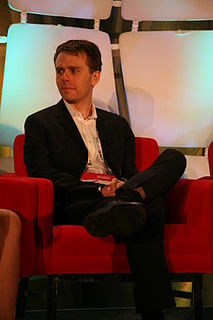A Quote by Ashok Soota
Companies come to us because they think we can quickly turn around things in 3 or 5 months and that's really our sweet spot. When you're a large company, you need projects that are several hundred million worth.
Related Quotes
Something worth doing might take a while, so really flesh out the potential of the business and be honest about whether it's worth doing. If it's not a $100 million company in five years, maybe it'll take 10 or 15 years. If you're doing something that has a universal, timeless need, then you need to think of the company in a timeless way.
Well, one measure of a good life, I think, is to be engaged in projects that one thinks are meaningful and worthwhile. So I would put the emphasis of a good life on activity, on the walk rather than the destination, and I think that most of the things that any of us do that are really valuable and really important are projects that we really shouldn't expect to be completed in our lifetime because if they could completed in our lifetime, they probably wouldn't be so important that we should devote our lives to them.
The trouble with integers is that we have examined only the very small ones. Maybe all the exciting stuff happens at really big numbers, ones we can't even begin to think about in any very definite way. Our brains have evolved to get us out of the rain, find where the berries are, and keep us from getting killed. Our brains did not evolve to help us grasp really large numbers or to look at things in a hundred thousand dimensions.
God reminds us again and again that things between He and us are forever fixed. They are the rendezvous points where God declares to us concretely that the debt has been paid, the ledger put away, and that everything we need, in Christ we already possess. This re-convincing produces humility, because we realize that our needs are fulfilled. We don’t have to worry about ourselves anymore. This in turn frees us to stop looking out for what we think we need and liberates us to love our neighbor by looking out for what they need.
Growth isn't central at all, because I'm trying to run this company as if it's going to be here a hundred years from now. And if you take where we are today and add 15% growth, like public companies need to have for their stock to stay up in value, I'd be a multi-trillion-dollar company in 40 years. Which is impossible, of course.


































